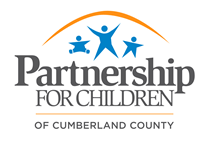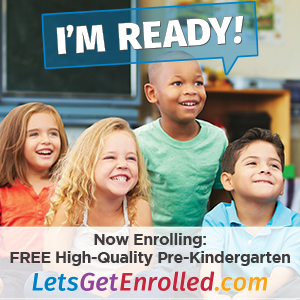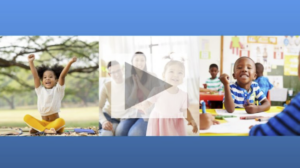The Family Focus Guide helps families and individuals in and around the Fayetteville area find resources in our community.
If you have a service-focused organization that serves families in the Fayetteville, Cumberland County area and would like to be listed, please email us at [email protected].
Offers services related to pregnancy by providing maternity clothes, physicals, food pantry, emotional and spiritual support, and children's clothing up to a 4T. Services are free, confidential, and available to all.
Assistance is available for those experiencing domestic violence–see “Domestic Violence Prevention and Assistance.” New Parent Support Program offers: classes for new or expecting parents; playgroups; and home visits to talk with new parents about concerns and coping with the demands of parenthood. Victim Advocate Program supports victims of domestic violence and sexual assault. Advocates can provide information about resources; accompany the victim to court; help locate shelters; and provide general support. Sexual Assault Prevention and Response Program provides crisis intervention and support services. Family Advocacy program also offers a variety of classes and referrals to counseling.
Benefits selected African-American residents of Cross Creek Township. Trustees of the fund determine allocation of a small financial gift at Christmas. Must apply in person during the month of November. Applicant must be 70 and over to be considered. Disbursement of funds is announced through the newspaper near the time of allocation. Call for more information.
Our Clothes Closet is a ministry of Evans Metropolitan Church with the purpose of providing clothing to needy families or individuals in the Fayetteville, NC community. The Clothes Closet is open on each Wednesday from 10 AM until 12 PM. The Clothes Closet is located in the Outreach Ministry Building on the Evans Metropolitan Church campus. Donations may be made Monday – Thursday 9:00 AM – 2:00 PM in the church office. We ask that all clothes being donated be clean and in good condition.
Provides emergency funds, when available, to help with food, clothing, utility bills (electric and water), rent, and other immediate crisis needs.
Since 1982, we have seen literally thousands of people come to us in need. Through the years our community has generously donated clothing and food to reach out to their neighbors.
Due to trying economic times and cuts in social programs, many come to Operation Blessing to have their needs met, all without cost. We accept weather appropriate clothing, new underwear and socks along with diapers for infants/toddlers, as well as food items that will help fill the gap for families of various sizes. Food assistance is always highly sought after.
The Mutual Self Help Housing Program is about offering home ownership to First Time Home-buyers with low and very low income (80% of the median income or below). You will need to be credit worthy (credit counseling available), meet USDA-RD loan requirements, and have a reliable source of income. You will be working with several families helping each other in the process of building each families house. Participation in the building process is required but no experience necessary. The program takes hard work, commitment, and willingness to work as a group on each others home. The best part of the program is your loan payment. Your loan payment is lower than other home loan payments as it is based on your income and not the current interest rate. Your lender is the United States Department of Agriculture (USDA) Rural Housing Service. The North Carolina Indian Housing Authority is paid through this grant not by you to assist you in loan process, first time home buyers education, the entire construction process itself and post home ownership education to help you keep your home.
This project is sponsored and supported by the North Carolina Housing Finance Agency and provides down payment assistance of 20% up to $25,000 (whichever is less) to low and very-low income families who need extra money to obtain a home mortgage. The $25,000 is a deferred second mortgage. The minimum loan amount is $7,500. Except for the minimum loan amount requirement all loan amounts should reflect the borrower’s actual assistance needed to make the home affordable. All borrowers must invest a minimum of $750.00 of their personal funds into the transaction. In addition, borrowers should have accessible assets equal to one months’ total house payment remaining on deposit after loan closing.
The funds received from the North Carolina Housing Finance Agency (NCHFA), is a deferred 2nd mortgage. After the first mortgage is paid, then you start making payments on the 2nd mortgage. The 2nd mortgage is interest free during the payoff of the 1st mortgage.
Families must be a first time home-buyer or have not owned a home as their principal residence during the past three years.
Administrative and cultural arts agency which seeks to enhance self determination and self sufficiency of Native Americans in Cumberland County as it relates to their political, socio-economic and well-being.
Offers employment counseling, classroom training, adult basic education classes and assistance in locating sources for paying utility bills in the winter.
Operates a senior citizens center and a housing locator service. Offers rent assistance if eviction is threatened.
All of our programs serve homeless families with their children. We offer an emergency Shelter Program 30-90 days, 24 month Transitional Housing Program, and a variety of permanent housing units. All programs provide intensive case management with supportive services and require participation in the Transitions Program.
A program of Fayetteville Urban Ministry that offers food, clothing, household items and personal care items to individuals in need. Donations and volunteers are needed in all aspects of this program.
Emergency Services: 9:00 a.m. - 1:30 p.m.
Assists individuals with rare diseases with medically related financial needs, veterans and first responders in need of quality of life enhancements, and underfunded education programs and nonprofit organizations serving these populations.
Helps with medically related needs and quality of life enhancements. Purchases items directly for individuals, which typically include medical equipment, home modifications, and co-payments for treatments or medications not covered by the patient's insurance. Some examples: therapy equipment and sessions not covered by insurance, handicap accessible home and car modifications, mobility items, purchasing of developmental and learning devices, co-pays for medically necessary surgeries and medications, other medical needs as recommended by a medical professional.
Not able to assist with past medical bills, funeral costs, lost family income due to disability or death in the family, experimental procedures that do not have federal or other governmental body approval, In Vitro Fertilization Costs (IVF).
Assists service members, Department of the Army civilians, and their adult family members in conducting effective job searches. Services include job search counseling, and assistance with resume writing and completing government employment applications. Provides speakers to the public and uses volunteers. Internet access available.
Catholic Charities provides tangible assistance to alleviate food insecurity for those who seek out assistance
NC -Cumberland County
NC -Hoke County
NC -Lee County
NC -Moore County
NC -Robeson County
NC -Scotland County
CCMAP provides medications to people of all ages with chronic medical conditions who need regular prescription medication, but lack adequate income and insurance for purchasing them. Does NOT provide emergency medication.
Collection of formal wear that can be checked out for special occasions. A $10.00 fee is charged for dry-cleaning.
Delivers layette packages to new mothers (E4 and below) who have their babies at Womack Army Medical Center.
Distributes food to non-profit organizations that deal with the needy, including church pantries, soup kitchens, child-care providers and senior-citizen programs. Accepts donations of food.
Eligible participants may receive help with glaucoma medications, eye drops for acute infections, cataract surgery when visual acuity is severely affected, laser surgery for diabetes and retinal tears, and emergency eye related surgeries.


